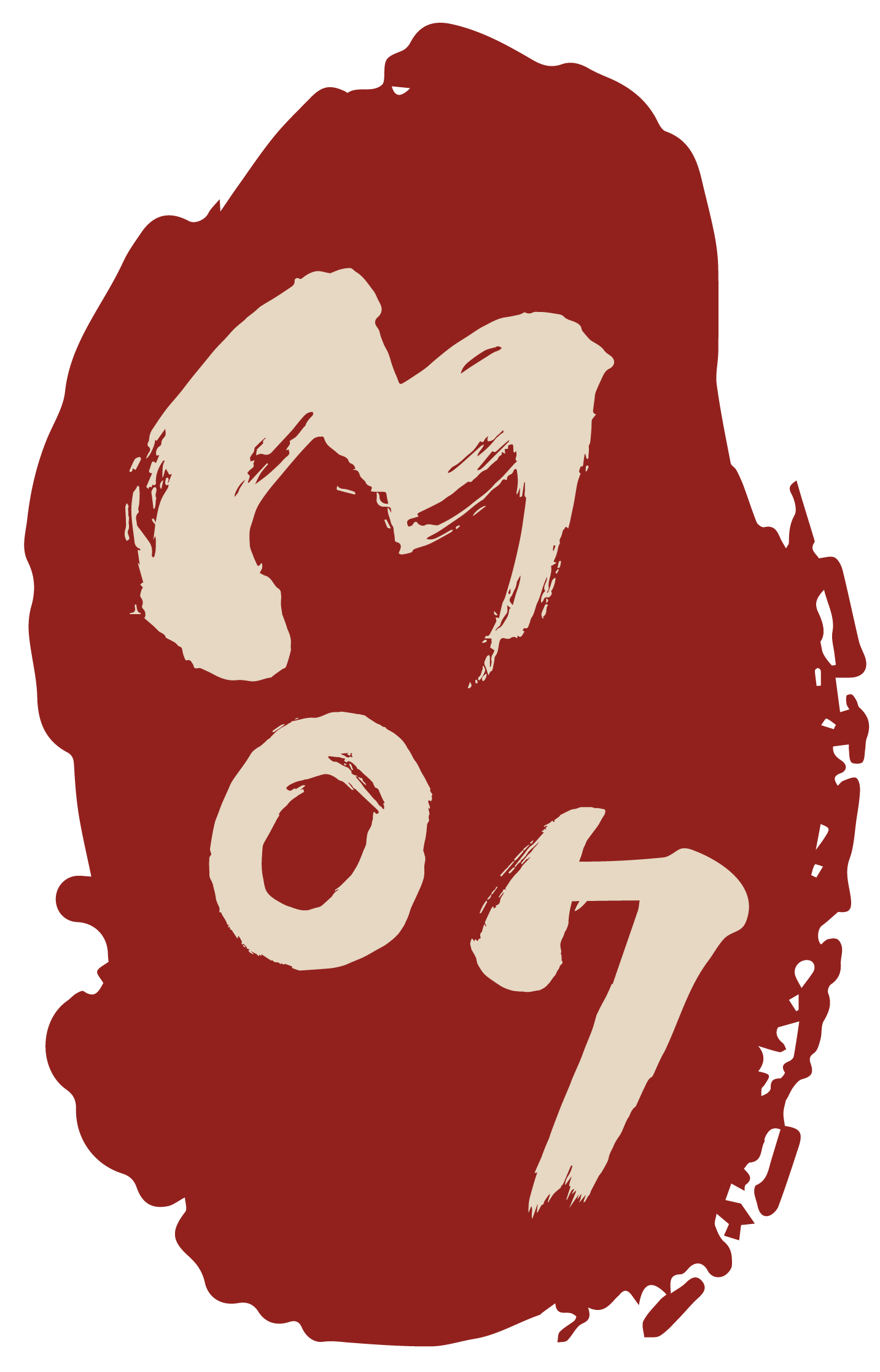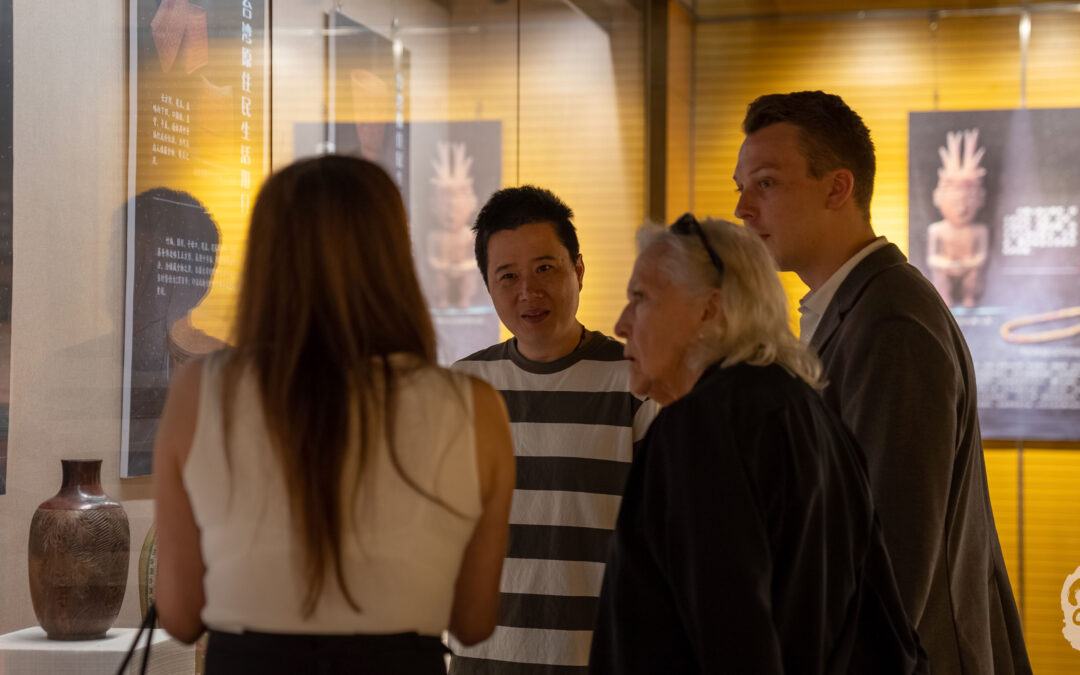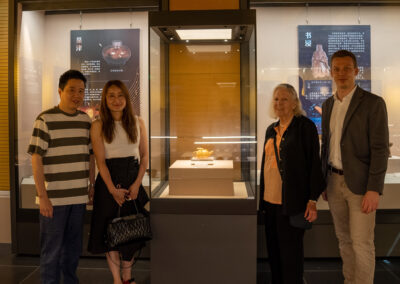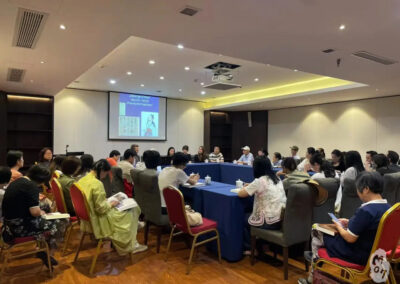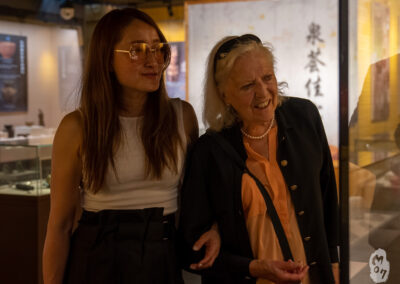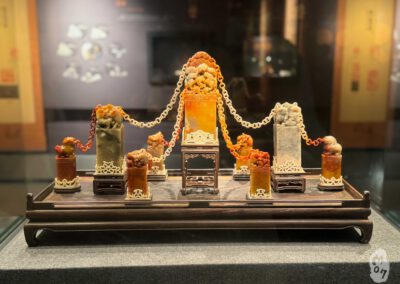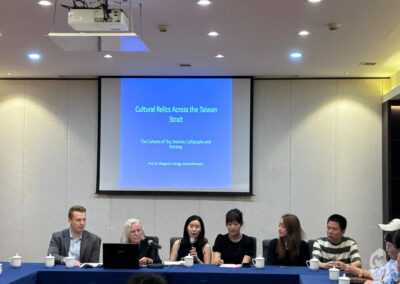On May 21, 2024, we had the privilege of attending special events at museums in the city of Fuzhou located in the Province Fujian in the southeast of China. The Fuzhou Gulou District Culture, Sports- and Tourism Bureau organized a series of interesting events on the occasion of the International Museum Day 2024 to the topic “Museums for Education and Research” (International Council of Museums, ICOM). Co-organizer of the exhibition in the Fuzhou Hot Springs Museum was M07 Albert Antique Co. Ltd.
This retrospective “Quan Jiabao – Cross-Strait Cultural Relics Exhibition” was realized in cooperation between the Fuzhou Museum Director Lin Shengzhe and the Taiwanese collector Ms. Hsun-Yu Wang. That was related to thermal spring collections under cultural aspects and folk customs of Taiwanese aborigines in connection with Chinese studies. In this context, people enjoy the profound cultures: the tea-ceremonies and flower arts, they appreciate and understand the meaning of incense, calligraphy and painting – embodied by great works of art in the exhibition. [1]
On the occasion of the opening our Vice Director Hsun-Yu Wang and our Head of Science and Research Prof. Dr. Hildegard Vieregg were invited to speak on this topic. Prof. Dr. Vieregg held a scientific lecture. Afterwards Mr. Lin Shengzhe and Ms. Wang introduced the aims of the exhibition with the historic artifacts and particularly emphasized on the great importance of World Heritage along the Taiwan Strait.
The subsequent panel discussion deepened the understanding, the appreciation and the relevance of tangible and intangible World Heritage for present and future. The Head of Operations of M07, Florian Vieregg M.A., enriched the discussion by exciting inputs to educational opportunities through virtual media.
The approximately 50 participants gained valuable insights into the cultural significance of intercontinental exchange through the presentations, the subsequent discussion and a Q&A session.
Another event took place in the Shoushan Stone Museum situated in the mountains close to Fuzhou. Here the museum is devoted to since ancient times common sealing for every type of certification and the extraordinary seals of the Chinese Emperors – each of them an artifact of the highest craftsmanship.
Here it was the aim to illustrate the history and culture of Shoushan stones, raise awareness of cultural heritage protection and promote cultural exchanges under the title of “Two-Shore Fusion: Taiwanese Collectors and Shoushan Stone Carving Exchange”.
After an impressive introduction by Wang Yongfu, the director of the museum at the beginning of the event, about the origin, historical mining and distributing of the Shoushan Stone, Prof. Dr. Vieregg and Ms. Wang highlighted the cultural significance of cultural monuments along the Taiwan Strait.
Wang Yongfu also emphasized the growing popularity of seal art in Taiwan and the importance of cultural exchange between the two sides of the Taiwan Strait. A special highlight was the concluding tour to the museum’s main exhibition and the presentation of a rare German book on Shoushan stone carvings from 1926. The diversity and beauty of the artworks on display was breathtaking and demonstrated the deep connection between the culture and the history and art of China.
We sincerely like to thank Mr. Lin Shengzhe, the Director of the Fuzhou Museums/Fujian and his staff for their outstanding hospitality, the excellent cooperation and organization of the exhibition. Particular thanks to the Fuzhou Gulou District Culture, Sports and Tourism Bureau.
This experience has strengthened our appreciation for the splendid Chinese arts, the Shoushan stone culture and the importance of cultural exchange, and inspires us to continue building bridges between cultures and promoting the rich heritage of Asian art. (JV)
[1] Fuzhou Gulou District Culture, Sports and Tourism Bureau/ Albert Antiques Co., Ltd (2024): Preface to the exhibition text. Fuzhou/Province Fujian.
